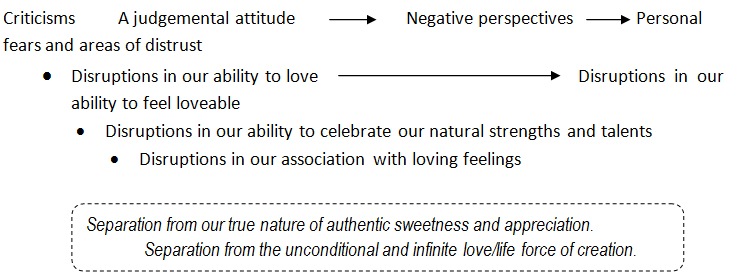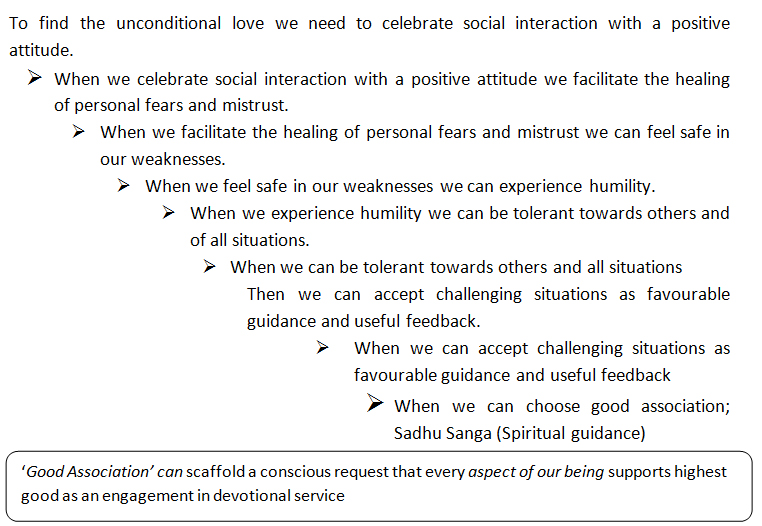
Discernment and Empowerment:-
Holding healthy boundaries; understanding and resolving challenging behaviour.
When adult carers consider carefully and creatively how to avoid ridged forms of care they empower members of the family according to individual personality, age and ability. There are three notable parenting doctrines that can easily impose dogmatic disciplinary behaviour within the context of parental care:-
Consistency – The doctrine that parents must hold identical views/ opinions/ ways of doing things and upholding boundaries on unsociable behaviour. Parents and fellow carers do need to discuss in depth how they can helpfully scaffold children’s care together, and simultaneously retain their own authenticity, individual interests and personal preferences. When consistency means compromising authenticity and unique personal perspectives, then some form of disempowerment is certain to affect all concerned.
Pacification – Parents are supposed to ensure that their children do not suffer any hardship or get upset. This doctrine holds adult carers responsible for presenting 100% successful systems of comforting irrespective of what caused the discomfort or the importance of the learning presented by the undesirable situation. This approach to parenting offers a subtle and unspoken philosophy that ‘if you are unhappy you can demand that others provide you with comforters to help you feel better. This approach avoids opportunities to embrace scaffolding that helps us to learn how to manage discomfort as a valid part of learning. Discomfort can be an important guide to knowing and understanding better in future situations. Comforts can help us to completely miss the elements required for learning and a better future performance. Attachment to comforters as a kind of reward system can distract the child from accommodating the learning that will promote better concentration and a more successful future performance. Thus, rewarding failure with comforters can make failure more desirable than success and thereby encourage children to avoid successful ways of overcoming difficult areas of learning.
Anti-Social and Disruptive behaviour
Disruptive behaviour can be directly and indirectly influenced by the energy and mood of others – those within the immediate physical environment and those that are sharing together socially in some form of exchange. It is how we engage our energy and our own disposition that is of utmost importance. Amongst a strong atmosphere of disharmony one person can give a child the choice of a safe, compassionate and supportive space and genuine loving care.
When over-endeavour consumes authenticity and disrupts our sense of being, then isolation can bring separation and associated withdrawal from co-operative interaction. Then we may drift away from the source of creative existence that nurtures love received in the giving. Then like a fallen leaf, stiff and dry, divinity within the person’s soul-spirit fails to generate the sparks of joy required for authenticity. We, as adults, need to take responsibility for our own feelings before we can hope to encourage positive attitudes and subsequent behaviour in others, especially children, who are so influenced by the energies and role models around them.
Integrated Boundaries of Integrity that empower our relationships, (especially parenting)
Authenticity is important. Personal and emotional honesty can avoid primitive survival issues and subsequent projections of expectation and demands. For example you have had an upset with your partner and there is a remaining level of emotional upset. When you are asked if you are upset you could explain that you have emotional feelings that are disturbing your sense of happiness and you will therefore need some time to process and establish a personal recovery
Empowered authenticity requires that a person is empowered to identify their own personal disposition as well as observe and monitor their responses.
In order to do this we need not be perfect, but simply willing make honest observations about our own feelings, and then establish, as best we can, a neutral disposition, if a positive attitude cannot be established authentically. For example:-
- You get a text from the in laws inviting the family out for lunch. However, you do not feel this is a suitable family outing for that particular evening. When your child asks what was said on your text you could simply reply: “it was an adult to adult text and it was not anything for you to be concerned with.”
Appropriate Adult Responsibility
Holding children and young dependent adolescence free from unsuitable and unnecessary levels of responsibility and decision making. For example:-
- Driving the car when, where, and at what speed;
- How to address money issues related to bills, provisions, safety etc.
- ‘Adult to adult’ communication in private so as to avoid unsuitable levels of dramatic entertainment or fear related worrying;
- Consciously organisation adult presentation of information, questions and choices tailored to suit the listener’s individual personality, level of ability and maturity.
Rules for the household.
- Mum and Dad, i.e. woman and men, are allowed to do things differently according to personal preference and male and female disposition. Differences empower authenticity and a clearer focus from either the male yang perspective of fatherly protection and provision, or the female perspective of motherly care and nurturing.
- Avoid giving others unsolicited – directions…instructions…help……If help is requested carefully establish a listening space for the person’s instructions. Enquire as to what sort of help they would like, and discern how you may be able and willing to provide help.
- Do not invade a person’s personal activity space without their invitation or approval. Do not disrupt a person’s personal space by doing an activity near them that disrupts their focus/ concentration/relaxation.
Disruptive/Anti-social behaviour
All disruptions to our original loving nature are based on ‘fear of not being loved, nurtured and cared for’ and these fears are expressed as either Mistrust or Control:-
| Mistrust Reservation Unnatural limitations within social interaction, intimate sharing and caring exchanges. Indifference to others feelings. Fear based attitude and a pessimistic outlook. Disrespect Avoidance of physical intimacy Criticism and grief |
Control Domination Possessiveness and jealousy Excessive independence Fixed on doing things their own way. Intolerance Desire to chastise, punish, discipline, and/or retaliate. Demands for physical affection, and use of emotional blackmail. Blame and anger |
For example:-
- If a boy experiences a lover relationship, even in a subtle and unseen manner, with his natural mother; then he is unlikely to willingly embrace the benefits of growing up into an independent adult. He is also likely to have strong issues of jealous rivalry with his first born son and issues of over protective possessiveness with his first born daughter.
- If a girl feels unloved by her natural father, for any reason what so ever, she is unlikely to establish a real loving intimacy with an adult male partner. She is also unlikely to establish an authentic loving intimacy with her first born daughter and likely to be over protective and possessive towards her first born son.
Our Potential for Loving Interaction
A spiritual path of devotional activity encourages our higher consciousness to heal disruptions that adversely affect our potential for loving interaction and our ability to engage in positive thinking and compassion.
Disruptive and anti-social behaviour is always a sign of poor self-worth, lack of confidence in oneself as a lovable person whose original inner nature can be joyfully shared with others. Unfortunately criticism has infiltrated our hearts and minds such that it is now a normal and often automatic form of response. Criticism is the way in which we express our emotional pains, social defence, and negative perspectives. A compassionate/authentic and/or positively creative response to every situation would eliminate the use of criticism and subsequent emotional damage.


